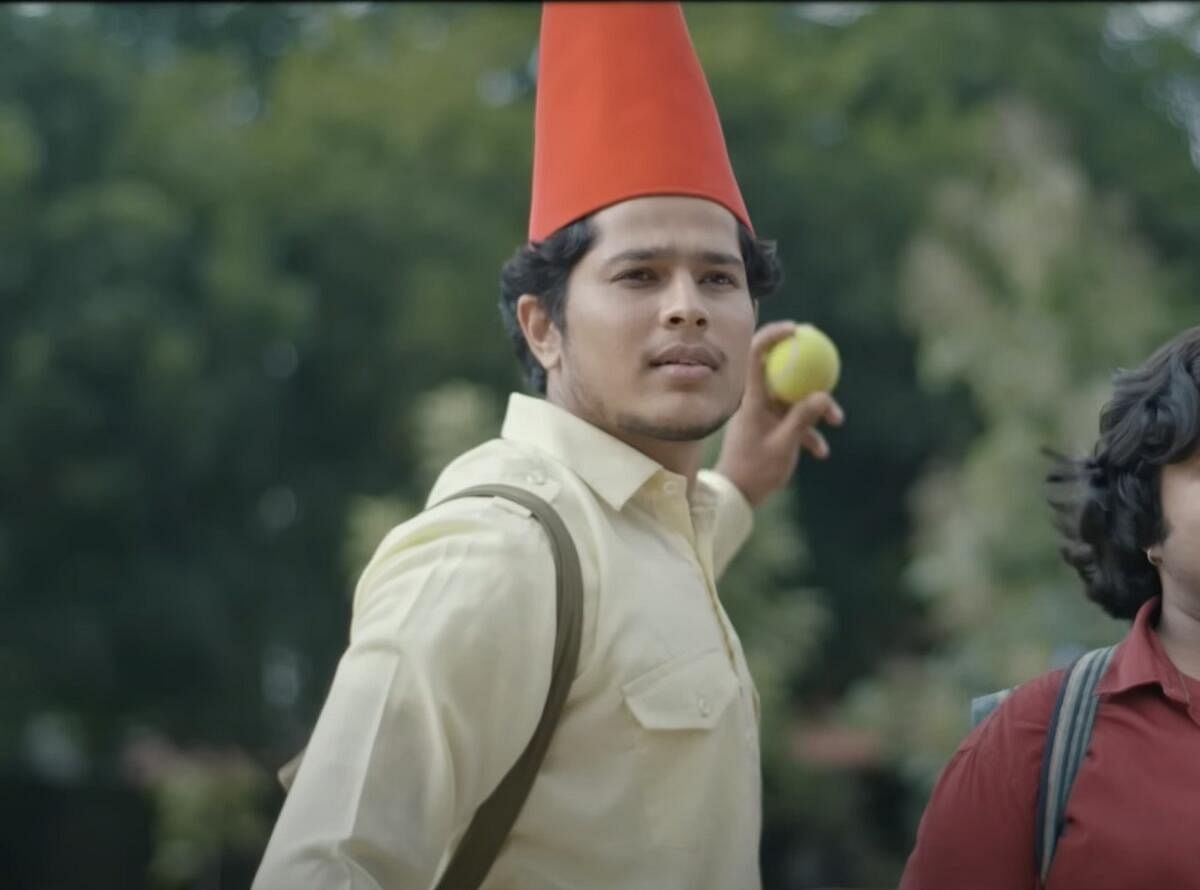
Daredevil Musthafa
(Kannada/Theatres)
Director: Shashank Soghal
Cast: Shishira Baikady, Aditya Ashree, Nagabhushana, Mandya Ramesh, Poornachandra Mysore
Rating: 4/5
How many mainstream Kannada films have a Muslim protagonist? How many filmmakers dare to make a creative work of progressive ideas against the zeitgeist of communal frenzy of the day? The answer is obvious and striking, and hence, Shashank Soghal's comedy drama ‘Daredevil Musthafa’ holds a special place in the alarming times we live in.
Based on the eponymous short story by Kannada literary stalwart K P Poornachandra Tejaswi, ‘Daredevil Musthafa’ is the story of five Hindu college students led by Ramanuja Iyengari (Aditya Ashree) in a communally sensitive place called Abachuru during 1970s, and what happens when Jamal Abdullah Musthafa Hussain (Shishira Baikady) joins their college. Musthafa, as the only Muslim student in the college, becomes subjected to all sorts of bigotry aided by people’s misperception and apathy towards his community. While the crux of the film evinces how the Hindu friends come of age in accepting and embracing Musthafa for what he is, the filmmaker shrewdly sets Abachuru as the microcosm of present-day India.
A careful positioning of an old interview snippet of Tejaswi at the film’s very beginning, in which he asks the youth to be wary of communalism, hints the viewers about the uniqueness of the film and the next 160 minutes delivers precisely that. While the casting of all terrific newcomers serves the film its first major win, the services of experienced actors like Mandya Ramesh, S Umesh, Nagabhushana, Poornachandra Mysore help a great deal, and the witty and crisp dialogues give the viewers genuine laughs throughout.
The apparent budgetary constraints of the crowdfunded period film have been brilliantly masked by the proficiency in the screenplay which can be seen in the clever usage of narration and impressive graphics in a scene where Musthafa saves the villagers from the rogue bull.
Although the film does indulge Musthafa in activities to make him look like a ‘good and perfect Muslim’ without any flaws like a normal non-Muslim person, it would have been awful if the movie was all about that. The film’s primary focus, however, is on the coming of age of the upper caste Ramanuja and his Hindu friends who shed their bigotry against Musthafa. It also shows how with them, the entire village comes together.
The film lags considerably in a few unnecessary and unremarkable song sequences, and especially the climax cricket scene could have been edited to the point. Nonetheless, the film’s reiteration of Kuvempu’s (Tejaswi’s literary giant father) oft-mentioned phrase ‘Sarva Janangada Shantiya Thota’ (A peaceful and harmonious garden of all communities) and ample jibes at the bogeys of everyday Muslim vilification (Love Jihad, Hijab, Halal etc) make the film a ‘daring’, rare and unique Kannada film - a need of the hour. And notably, this does not come at the expense of a preachy and boring film, but with a sparkling and mindful college drama.